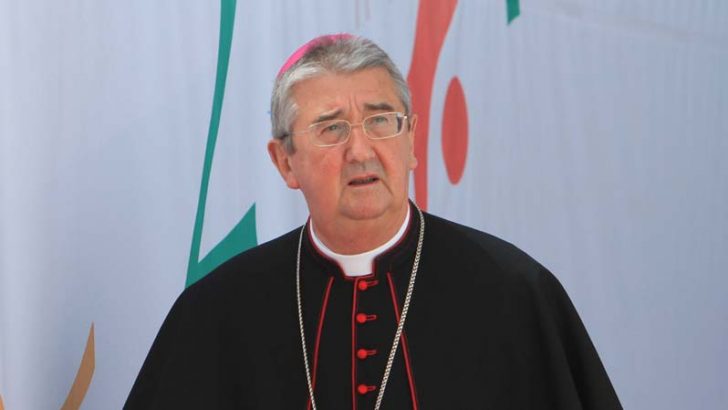Taoiseach Leo Varadkar’s call for a new relationship between Church and State remains an important call for dialogue, Dublin’s Archbishop Diarmuid Martin has said.
“So far no progress has been made by the Government in developing the Taoiseach’s idea of a Covenant,” Archbishop Martin said yesterday about Mr Varadkar’s Dublin Castle speech during the papal visit. “The demands of addressing the challenges of Brexit have justifiably taken up the time of politicians. This does not mean that this dialogue is not important not just for the interests of Churches and government, but rather for the good of Irish society.”
During the August 2018 speech, Mr Varadkar said that while religion is no longer at the centre of Irish society, it still has an important place there.
Dialogue to build a new Church-State covenant will require changes of attitude, Dr Martin observed in his speech on ‘The Church of the Future’, marking the 175th anniversary of St Michael’s Church of Ireland Church in Limerick’s Pery Square.
“I do not believe that people have a true sense of the crisis of faith that exists in Ireland,” he said. “Yes, there are many residual elements of faith in our society and they are deep-rooted. These elements, however, are weakened with the passage of each generation.”
Current forms of Catholic education are not helping in this regard, he added.
“We have invested in structures of school-based religious education that despite enormous goodwill are not producing the results that they set out to achieve,” he said. Pointing out that there are “great teachers” in Ireland’s faith schools, he added that “the system is also such that teachers who do not share the faith find themselves at times teaching something of which they are not convinced”.
“There are fundamental fault-lines within the current structure for Catholic schools that are not being addressed and unattended fault-lines inevitably generate destructive energies,” he said.
At the same time, he maintained, Catholic education has “a solid track record”, and has an important future in Ireland alongside other forms of education. “The real level of parents’ interest in Catholic education will only be objectively measurable only when they have real choice,” he said.
Acknowledging that statistics show clear declines in religious practice and identification, Dr Martin spoke of the need for renewal in the Irish Church, and praised Pope Francis’ encyclical Laudato Si’ for opening paths for ecumenical collaboration for young people. While speaking of the importance of ecumenical activity, however, the archbishop called for more assertive theological dialogue on areas of difference. “They will not go away by simply ignoring them or coming to private individual solutions,” he said.
Dr Martin also said it would be worth revisiting the idea, raised during the 2012 Apostolic Visitation of Irish dioceses, or rationalising and reducing the numbers of Irish dioceses.


 Greg Daly
Greg Daly Archbishop Diarmuid Martin
Archbishop Diarmuid Martin 